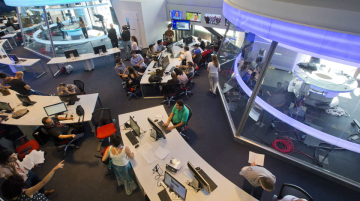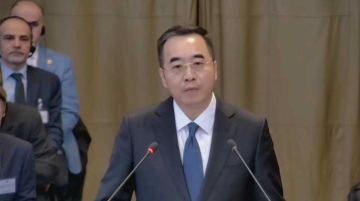
By Felix Brender 王哲謙 and Lukas Fiala
Invigorated by having kicked the Saudi-Iranian deal over the finish line earlier this year, China had initially tried to appear neutral and present itself as a potential mediator in the most recent escalation in violence between Israelis and Palestinians following Hamas’ October 7th attack.
Nevertheless, Chinese official media focused more on Israel’s response than the immediate trigger for these recent events. Across social media, where there is slightly greater leeway for debate, there has been a clear tendency to focus on Israel — described as entirely created and henceforth propped up by the West — as the root cause, reflecting China’s long-standing criticism of U.S.-led alliance and security architectures.
Failure to condemn or at least empathetically acknowledge civilian casualties following Hamas’s attack earlier last week and instead doubling down on calls for an independent Palestinian state has angered the Israelis. Despite the attack claiming Chinese lives, too, and China considering itself victim of Islamic terrorism, as early as Sunday, China’s Foreign Minister, Wang Yi, said that Israel’s response had gone too far and beyond self-defense.
This rather slanted stance calls into question if China at heart is neutral and seeks to mediate in the conflict, especially since notions of the Middle East as the “graveyard of superpowers” remain prevalent in Chinese political circles. Indeed, both China’s response and the slim likelihood Beijing will play a meaningful role in resolving the conflict once more demonstrate enduring features of China’s approach to overseas crises.
First, the media representation of the Israeli-Palestinian conflict as the consequence of Western policy-making incompetence and moral shortcomings helps reinforce and ties in with Chinese claims of providing a set of more functional alternative — authoritarian — norms. Reminiscent of Beijing’s response to Russia’s attack on Ukraine, China’s diplomatic statements continue to focus on the longue durée of the conflict rather than the recent outbreak of violence itself: Calls for peace talks and the two-state solution do little to reduce tensions and cease hostilities at this stage.
However, this framing allows Beijing to present itself as the voice of peace while offering little constructive input that would actually provide a tangible solution. Instead, such narratives serve to promote China’s own global security agenda, which – at least since the publication of the Global Security Initiative – has been framed in more adversarial terms vis-à-vis- the West.
Furthermore, China’s overall response also attests to the broader limitations of Beijing’s approach to overseas conflicts. While China is more likely to make a claim to fame in bilateral negotiations with clearly defined governmental authorities such as in the Iran-Saudi Arabia case, China’s statist understanding of peace works less well in situations characterized by contested claims of sovereignty – especially when non-state and/or extremist groups are involved.
Similar to the conflict in Ethiopia over the last two years – where China dispatched a Horn of Africa Envoy to promote a regional security initiative – we see China once again trying to juggle a range of its own interests: cooperation on military technology and expertise with Israel, long-standing ties with Palestine (which Beijing recognized before recognizing Israel), as well as economic and diplomatic relations with the wider Arab world. Whether China will be successful in doing so remains to be seen.
Felix Brender 王哲謙 is a PhD candidate at the London School of Economics & a Project Associate at LSE Ideas. Lukas Fiala is the project coordinator for the China Foresight initiative at LSE IDEAS.





